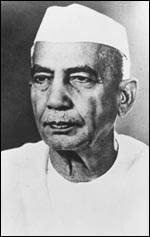Kisan Diwas | 27 Dec 2021
Why in News
The 'Kisan Diwas' or National Farmers Day is observed across the country on 23rd December to celebrate the birth anniversary of Chaudhary Charan Singh, the former Prime Minister of India.
- It is celebrated to promote awareness among the citizens to understand the importance of the contributions of the farmers to the society and overall economic and social development of a country.
- Government also aims to encourage the farmers across the country by organising various activities like debates and seminars on agriculture.
Key Points
- He was born in 1902 at Noorpur in Meerut district of Uttar Pradesh and was the Prime Minister of India from 28th July 1979 to 14th January 1980.

- Being a proponent of rural and agricultural development he made continuous efforts for keeping agriculture at the centre of planning for India.
- He was given the nickname ‘Champion of India’s Peasants’ for his work towards upliftment of farmers and development of agriculture throughout the country.
- He took a leading part in formulation and finalisation of the Debt Redemption Bill 1939, in order to give relief to the peasantry from moneylenders.
- He was instrumental in bringing about the Land Holding Act, 1960 which was aimed at lowering the ceiling on land holdings to make it uniform throughout the State.
- He left Congress in 1967 and formed his independent party known as the Bharatiya Lok Dal.
- He served twice as Chief Minister of Uttar Pradesh. He became Prime Minister of India in 1979.
- He was the author of several books and pamphlets, including ‘Abolition of Zamindari’, ‘Co-operative Farming X-rayed’, ‘India’s Poverty and its Solution’, ‘Peasant Proprietorship or Land to the Workers’ and ‘Prevention of Division of Holdings Below a Certain Minimum’.
Importance of Agriculture in India
- Almost half of India’s rural households have insignificant stakes in agriculture.
- According to the 2019 Situation Assessment Survey (SAS), there are 93.1 million agricultural households in rural India.
- An agricultural household is defined as one which produced field or horticultural crops, livestock, or other specified agricultural products worth more than Rs 4,000 and had a member self-employed in agriculture in the 365 days preceding the survey.
